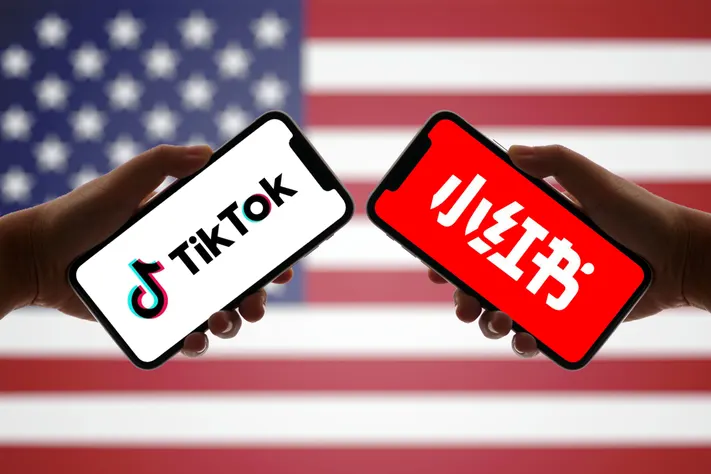In the wake of the TikTok ban, a new app has emerged as one of the top downloaded apps across Google and Apple app stores, despite political fears of Chinese access to U.S. data. Rednote, known in China as Xiaohongshu, which translates to English as “Little Red Book,” calls into question the attitudes of American citizens in comparison with the Anti-Chinese actions of the new administration.
Within days before the ban, “RedNote skyrocketed to the top of the U.S. App Store, gaining nearly 3 million users overnight,” according to Business Insider. The app’s focus on lifestyle content, including fashion and beauty, appealed to creators looking to continue their work in a new digital space.
However, the transition to RedNote was not seamless. Many American users encountered strict content regulations, with posts discussing certain political or social issues being censored or removed.
As The New York Times reported, “U.S. influencers were surprised to see their content flagged or taken down for violating RedNote’s stricter content guidelines, which are influenced by Chinese government policies.” The censorship forced many users to adjust their content strategies or risk losing their accounts.
Despite these challenges, some users embraced RedNote as an opportunity to engage with Chinese culture. The platform provided unique insights into Chinese trends and lifestyle choices, fostering a new level of cross-cultural exchange.
“It’s interesting to see how different audiences engage with content,” one user told The Wall Street Journal. “I’ve learned so much about Chinese fashion and beauty standards that I wouldn’t have seen on TikTok.”
RedNote is described as a blend of Instagram and Pinterest. The new platform quickly gained traction among former TikTok users.
In 2017, the Chinese tech company “ByteDance” acquired Musical.ly, rebranding it as TikTok in 2018. Over the years, TikTok became a cultural phenomenon in the U.S., amassing over 170 million monthly users. However, by 2025, the app faced a nationwide ban after the U.S. Supreme Court upheld a law requiring ByteDance to divest its ownership or face removal from app stores.
According to CNN, “U.S. lawmakers have long feared that ByteDance could be compelled by Beijing to hand over user data, jeopardizing national security.” Despite ByteDance’s repeated denials, concerns over potential data misuse and content manipulation led to the app’s forced exit.
The ban sparked an outcry from TikTok’s vast user base, with many influencers and businesses worried about losing their audience and income.
As The Wall Street Journal noted, “TikTok has been a major source of revenue for content creators, with many relying on brand partnerships and ad revenue to sustain their careers.” The absence of TikTok created an urgent need for a new platform that could provide similar opportunities for creative expression and monetization.
As the situation continues to unfold, the debate over data privacy and national security remains at the forefront. Lawmakers are now considering additional measures to regulate foreign-owned apps in the U.S. Meanwhile, American tech companies like Instagram and YouTube are rolling out new features to fill the gap left by TikTok’s departure.
For now, RedNote’s rise underscores the ongoing struggle between digital connectivity and national security. Whether the platform can sustain its popularity in the U.S. amid ongoing regulatory scrutiny remains to be seen, but one thing is clear: the TikTok ban has reshaped the social media landscape in profound ways.

